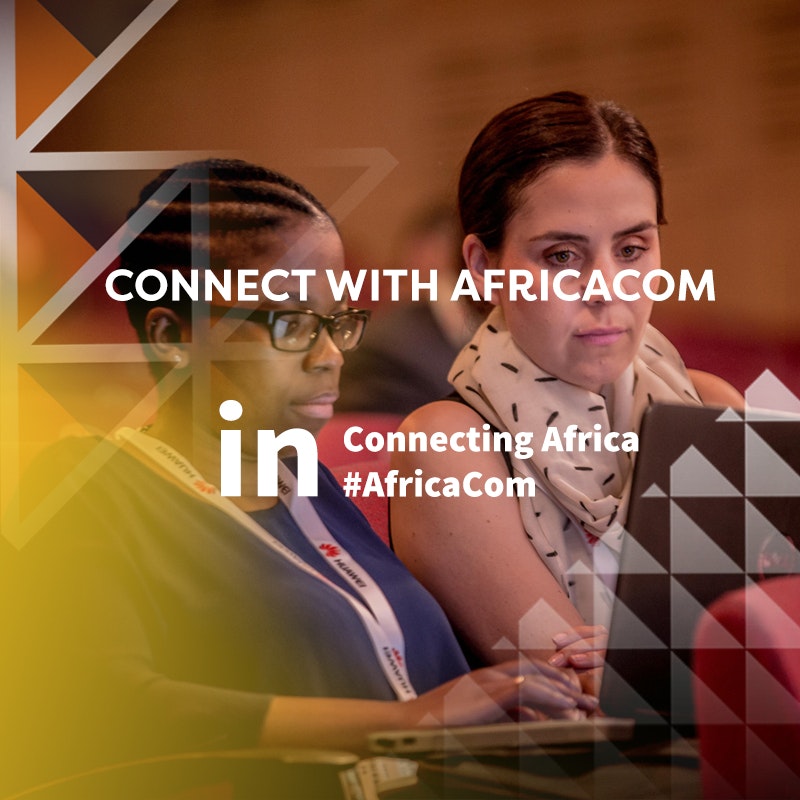Exhibition Opening Dates: 12 - 14 Nov 2024,
Cape Town International Convention Centre, Cape Town
The AfricaCom Glossary
Understand the key technologies underpinning African Industry 4.0 & elevating the continent’s digital economy.
# - C
4G
4G is the fourth generation cellular network technology, offering much faster wireless Internet access and high-definition digital voice.
5G
5G is the upcoming next generation cellular network technology, offering faster speeds, lower latency, increased availability, improved reliability and innovative new use cases.
AFest
The AFest at AfricaCom is an unforgettable night of music from some of Africa's leading artists. AFest 2019 will take place at Shimmy Beach Club on Tuesday 12 November.
Africa 4.0
Africa 4.0 represents the huge potential of the continent when armed with the emerging technologies of the Fourth Industrial Revolution such as the IoT and Cloud Computing.
AHUB
The AHUB is our tech startup zone at AfricaCom, designed to highlight the critical role of entrepreneurship in fuelling Africa's digital economy and connecting African tech start-ups and scale-ups with investors and corporate partners.
Artificial Intelligence (AI)
AI refers to the development of computer systems to perform tasks which previously required the intelligence of a human such as understanding human speech.
Augmented Reality (AR)
AR refers to applications which enhance the real-world environment with superimposed computer-generated graphics or images.
Blockchain
Blockchain is a digital, distributed ledger which resists the modification of its data and can therefore be applied to uses such as financial transactions which need to be permanently verifiable.
Cloud Computing
Cloud Computing, commonly referred to as 'The Cloud', is the practice of employing a network of remote servers hosted on the Internet. It allows you to store, manage and process data, as opposed to using a computer or local server.
D - M
Digital Economy
The Digital Ecomony is the economy based on digital computing technologies, largely made up of business conducted via the Internet.
Digital Inclusion
Digital inclusion means ensuring that everyone in society, including disadvantaged groups such as the elderly and rural populations, have the access and skills they need to use Information & Communication Technologies (ICT).
Digital Switch Over (DSO)
The Digital Switch Over is the process whereby analog television broadcasting is switched off and these services are replaced by digital transmission.
Digital Transformation
The process of using digital technologies to create new — or modify existing — business processes, culture, and customer experiences to meet changing business and market requirements.
Edge Computing
Edge computing is a system for optimising applications by pushing computing applications, data and services away from centralized nodes to the edge of a network, closer to the end-users.
Fibre Connectivity
A fibre connection uses a fibre optic cable to transmit data, increasing capacity and decreasing the cost of an enterprise system connection.
Fibre Optic Broadband
A type of broadband technology which uses plastic or glass cables rather than copper wires, allowing faster data transfer and a more reliable internet connection.
FinTech
The Financial Technology (FinTech) industry uses technology to optimise processes in finance, including mobile banking and cryptocurrency.
Fourth Industrial Revolution
A technological revolution whereby current technologies and innovations are replaced by new more productive and efficient technologies, affecting every level of business and society.
Internet of Things (IoT)
The IoT refers to the connections between objects, appliances and machinery via embedded sensors and chips, enabling them to interact, operate and receive and transmit data automatically.
Machine Learning
Machine Learning is a subset of artificial intelligence that uses statistical techniques to allow computers the ability to "learn" with data.
Mission Critical Technologies
Mission Critical Technologies are designed for public safety, including communications technologies, unmanned and automated technologies, wearable technology, and command and control solutions.
N - Z
Network Function Virtualisation (NFV)
Network Function Virtualisation (NVF) is a network architecture using IT virtualization to simplify and speed up services, allowing a more flexible network vital for 5G and converged networks.
OTT
OTT (over-the-top) content providers distribute content directly to consumers over the internet, bypassing the telecoms and broadcast companies which traditionally would have been involved in distribution.
Small Cells
Small cells are low radio frequency access points which have a range that can be as low as a few metres. They can be used to improve network coverage, for example, in dense urban areas.
Smart City
A smart city is one which uses a range of information and communication technologies to improve efficiency, management of resources and quality of life.
Subscription video on demand (SVOD)
Subscription video on demand (SVOD) platforms provide users unlimited access to a range of video content, which they can choose to watch at any time, for a regular fixed rate.
Virtual Reality (VR)
VR provides a realistic experience of a virtual environment, usually through use of a headset, that allows users to feel present within this reality and able to engage with and affect this virtual world.





